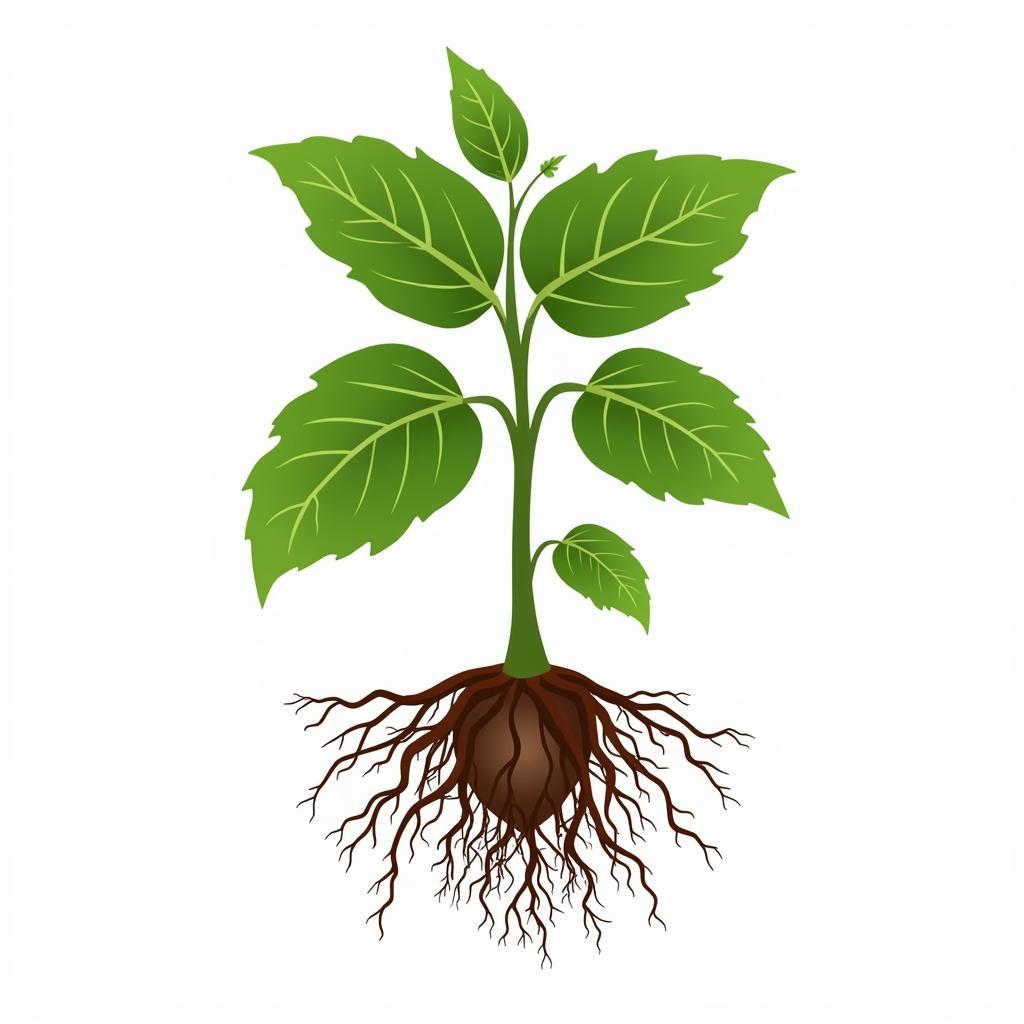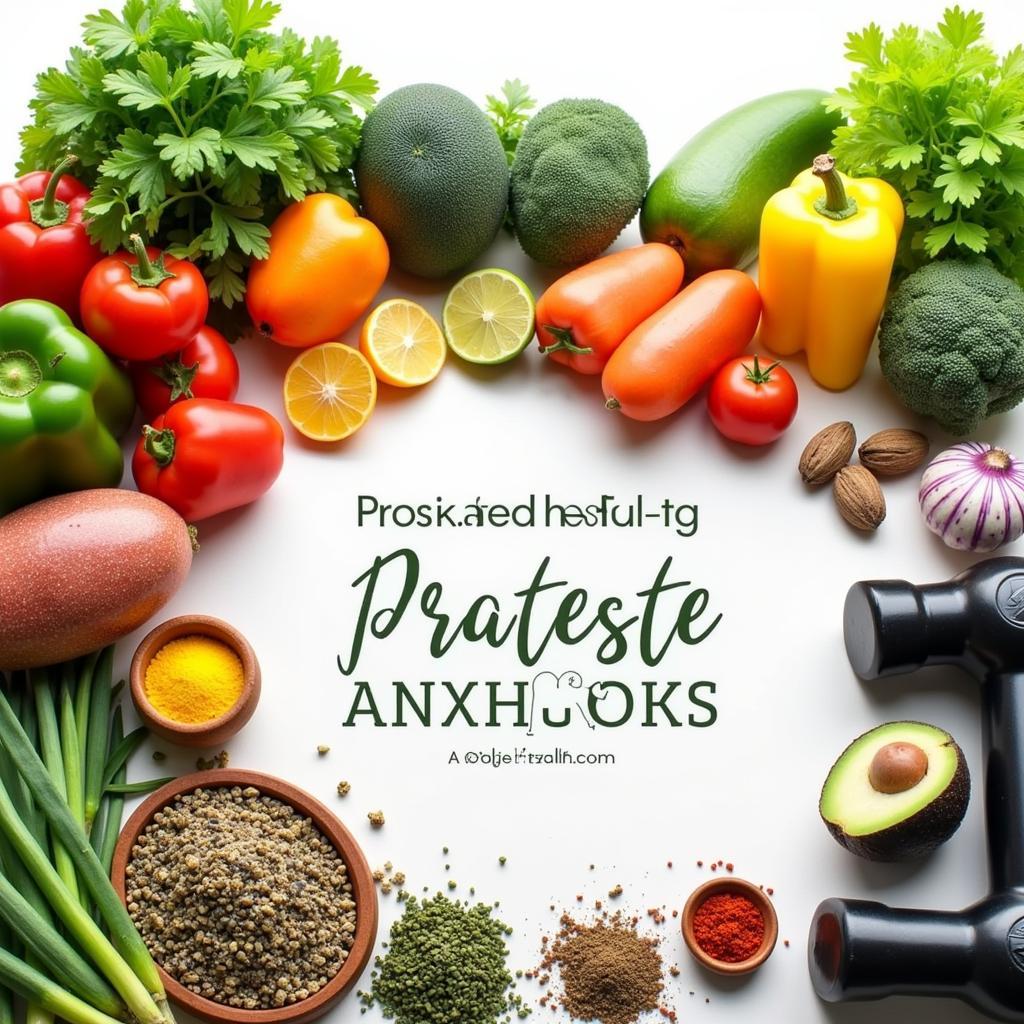African Herb for Prostate: Nature’s Potential Remedies
African traditional medicine offers a rich tapestry of natural remedies, and for prostate health, several herbs have garnered attention. Men seeking natural approaches to prostate health often turn to these traditional remedies, hoping to find support for this vital aspect of their well-being. Let’s delve into the world of African herbs for prostate health, exploring their potential benefits and traditional uses.
Exploring the Potential of African Herbs for Prostate Support
For generations, various African communities have relied on the healing power of plants to address a range of health concerns, including prostate health. While modern medicine provides valuable treatments, many men are increasingly interested in exploring natural options as complementary therapies. African herbs, rooted in centuries of traditional use, offer a unique perspective on prostate health. These natural remedies, often passed down through generations, represent a valuable aspect of African cultural heritage.
One prominent example is Pygeum africanum, also known as the African plum tree. The bark of this tree has been traditionally used to alleviate urinary symptoms associated with benign prostatic hyperplasia (BPH). Similarly, Hypoxis hemerocallidea, commonly called the African potato, has shown promise in preclinical studies for its potential anti-inflammatory and antioxidant properties, which could benefit prostate health. Understanding the potential of these herbs requires careful consideration of both traditional knowledge and scientific research.
 Pygeum Africanum Bark for Prostate Health
Pygeum Africanum Bark for Prostate Health
Traditional Uses and Modern Research on African Herbs for Prostate
Many African cultures have integrated specific herbs into their traditional healthcare practices for prostate health. These practices often involve preparing decoctions, infusions, or other herbal preparations, showcasing the deep connection between nature and well-being. While anecdotal evidence supports the use of these herbs, more robust scientific research is needed to fully understand their efficacy and safety.
Prunus africana, another significant African herb, has been the subject of several scientific studies. Some research suggests that it may help reduce the symptoms of BPH, while other studies have yielded mixed results. This highlights the importance of conducting thorough research to determine the true potential of these herbs. It’s crucial to consult with healthcare professionals before incorporating any herbal remedies into your health regimen, especially if you have pre-existing conditions or are taking other medications.
Understanding Benign Prostatic Hyperplasia (BPH) and the Role of African Herbs
BPH, a non-cancerous enlargement of the prostate gland, is a common condition affecting men as they age. This enlargement can lead to various urinary symptoms, such as frequent urination, weak stream, and difficulty emptying the bladder completely. Traditional African medicine often utilizes herbs to address these symptoms, providing a natural approach to managing BPH.
Several African herbs, like Securinega virosa, have traditionally been used to alleviate the urinary discomfort associated with BPH. While these traditional uses offer valuable insights, it’s important to note that more research is needed to validate their effectiveness and safety. Combining traditional knowledge with rigorous scientific investigation is essential to unlock the full potential of these natural remedies.
 African Potato (Hypoxis hemerocallidea) for Prostate Support
African Potato (Hypoxis hemerocallidea) for Prostate Support
Choosing and Using African Herbs for Prostate Health Wisely
If you’re considering using African herbs for prostate health, it’s essential to do so with caution and under the guidance of a qualified healthcare professional. Not all herbs are created equal, and the quality, preparation, and dosage can significantly impact their effectiveness and safety. Seeking professional advice is crucial to ensure you’re using the right herbs in the right way.
Dr. Adebayo Olufemi, a renowned ethnobotanist specializing in African medicinal plants, advises, “Traditional knowledge is invaluable, but it should be complemented by scientific validation. It’s crucial to consult with a healthcare provider to ensure safe and effective use of African herbs.”
The Importance of a Holistic Approach to Prostate Health
While African herbs may offer potential benefits for prostate health, it’s important to remember that they are not a magic bullet. A holistic approach to prostate health involves a combination of factors, including a balanced diet, regular exercise, and routine medical checkups. Integrating African herbs as part of a comprehensive approach, under the guidance of a healthcare professional, may offer a valuable addition to your overall prostate health strategy.
Professor Fatima Hassan, a leading urologist in South Africa, emphasizes, “Prostate health is a multifaceted issue. A balanced lifestyle, regular screenings, and open communication with your doctor are crucial for maintaining optimal prostate health. African herbs may have a role to play, but they should be integrated into a broader health plan.”
 Holistic Approach to Prostate Health with African Herbs
Holistic Approach to Prostate Health with African Herbs
In conclusion, African herbs offer a fascinating glimpse into the potential of natural remedies for prostate health. While traditional uses provide valuable insights, further scientific research is needed to fully understand their benefits and risks. If you’re considering using African herbs for prostate support, consulting with a qualified healthcare professional is essential to ensure safe and effective use as part of a comprehensive approach to prostate health. Remember, a healthy prostate contributes to overall well-being, so prioritize your prostate health and seek professional guidance when exploring natural remedies like African herbs.
FAQ
- Are African herbs safe for prostate health? While many have a history of traditional use, it’s crucial to consult a healthcare professional before using any herbal remedy, especially if you have existing medical conditions or are taking other medications.
- What are the most commonly used African herbs for prostate health? Pygeum africanum, Hypoxis hemerocallidea, and Prunus africana are among the most well-known.
- Can African herbs cure prostate cancer? No, there is no scientific evidence to support this claim. African herbs should not be used as a replacement for conventional medical treatment for prostate cancer.
- Where can I purchase African herbs for prostate health? It’s essential to source herbs from reputable suppliers who can guarantee quality and safety. Consult with a healthcare professional for recommendations.
- How long does it take to see results from using African herbs for prostate health? The timeframe for potential benefits can vary depending on the individual, the specific herb, and the overall health status. Consult with a healthcare provider for personalized advice.
- Can I combine African herbs with conventional prostate medications? It’s crucial to discuss any herbal remedies with your doctor before combining them with other medications, as interactions may occur.
- Are there any side effects associated with using African herbs for prostate health? Like any substance, herbs can have potential side effects. Consulting with a healthcare professional is essential to minimize risks and ensure safe usage.
Need more information? Explore our other articles on traditional African medicine and natural remedies for men’s health.
If you need support, contact us at Phone: +255768904061, Email: [email protected], or visit us at Mbarali DC Mawindi, Kangaga, Tanzania. We have a 24/7 customer service team ready to assist you.

